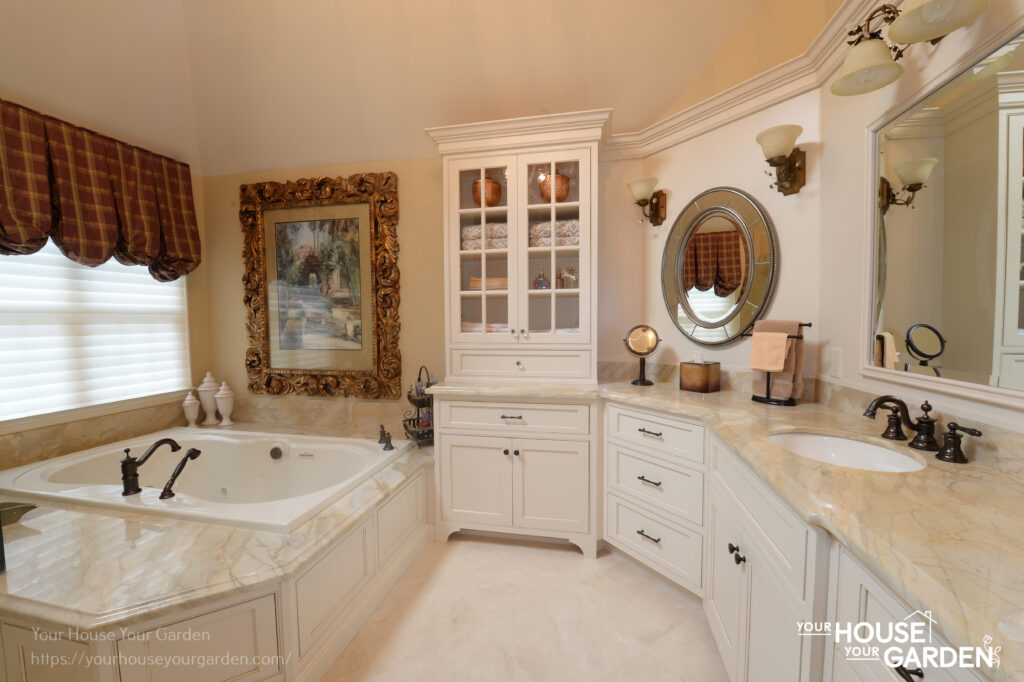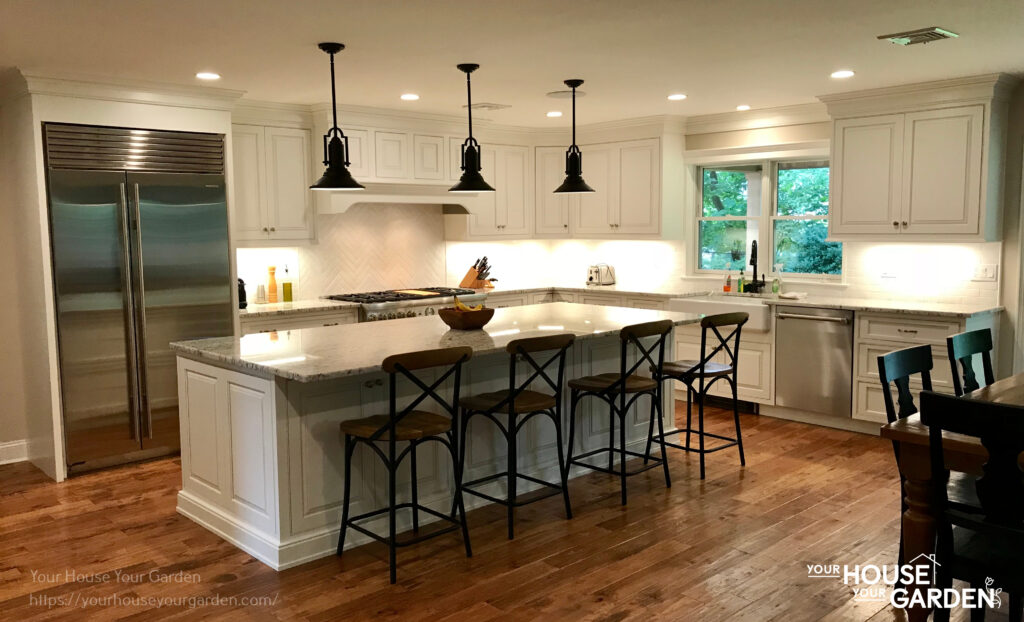Quartz vs Marble Countertops
Home » Home Remodeling » Kitchen Countertops » Quartz vs Marble Countertops
After deciding on the specific custom kitchen cabinets, you may be moving on to deciding between quartz or marble for your counters. While one is a natural stone and the other can mimic natural stones, how do you decide between the two? This ultimately depends on your budget, aesthetic preferences, and how much effort you are willing to put into maintaining the countertop materials. Here’s what you need to know in order to choose the right material for your countertops.
Quartz vs Marble: The Difference
What is Quartz?
Quartz, the natural mineral, is the abundant substance used in engineered stone counters. Along with other minerals like micas and feldspar, quartz countertops are also composed of natural quartz crystals, which look like glass, and resins. New countertops made out of quartz are typically composed of 90% or 95% of quartz and 5% or 10% of polymer resin. Unlike natural stone countertops (e.g., granite countertops), engineered quartz is a non-porous surface that can mimic the appearance of granite, soapstone, marble, and other materials.
What is Marble?
Known for being a metamorphic rock, marble is a natural stone that undergoes intense heat and pressure to become the slab for your space. Before becoming the popular countertop and backsplash material you may know that marble is limestone that undergoes a chemical and physical transformation in order to become a hard, stone surface. Limestone is considered soft due to its calcium makeup and after heat and pressure is applied to this material, it recrystallizes and forms calcite crystals. This material is then quarried, cut, and shaped into a beautiful kitchen or bathroom counter.

Pros and Cons
Let’s take a closer look at each option in order to make the best decision possible for your kitchen or bathroom countertops.
Quartz Countertops: Pros
Aesthetic Versatility: As an engineered stone, a quartz countertop is a solid surface with versatility in terms of colors, patterns, and finishes. Additionally, quartz countertops can mimic popular materials like granite, soapstone, concrete, and marble.
Low-maintenance: Unlike other countertop materials, engineered stone countertops like quartz are low maintenance. This solid surface does not require sealing and is generally stain-resistant and scratch-resistant. For spilled red wine or splashes of tomato sauce, use warm, soapy water and a kitchen towel to clean up.
Longevity: A quartz countertop is durable and can take on the hustle and bustle of everyday kitchens. Quartz countertops are hard enough that they will not easily chip, scratch, or stain.
Warranty: A quartz counter is usually offered with warranty terms that last from 10 years to a lifetime because this is one of the more durable countertop options on the market.
Quartz Countertops: Cons
On the More Expensive End of the Spectrum: Quartz countertops may not be as expensive as granite, but it is an investment to have this material for your kitchen or bathroom counters.
Uniform Composition: Unlike marble, quartz will have uniform veining, speckles, and color. It is engineered to be uniform throughout the entire countertop which may be unappealing to homeowners looking for something more unique.
Not Heat-resistant: While the mineral quartz is known for its heat resistance, the countertop is not. Due to the polymer resins that are mixed into the minerals, pots, and pans that are 300°F (149°C.) or hotter will cause visible scorch marks and may even cause the counter to crack.
Marble Countertops: Pros
Uniqueness: A marble countertop is one of a kind. From its color to veining pattern, no two marble countertops are the same.
Can Take on Heat: While it is recommended that you use hot pads in the kitchen if you decide on marble for your kitchen countertops, it will be able to handle hot pots and pans. The same goes for bathroom countertops. Marble will be able to withstand hot appliances without cracking or chipping.
Increases Value of a Space: The resale value of your home if you have marble counters will be significantly higher because it costs more per square foot.
Can Be Sealed: As a porous material, marble will require regular sealing so that it will not stain. However, after being sealed and polished, the counter will not easily stain when you spill lemon juice or soup on the surface as long as you clean up liquids quickly.
Marble Countertops: Cons
High-maintenance: This stone is just like granite which may be too high-maintenance for some homeowners. This means that marble, without being sealed, is susceptible to stains if spilled liquids are not cleaned up immediately.
Visible Etching: When acidic substances come into contact with marble, they will leave a white mark known as etching.
Price Point: Marble will cost more than most popular materials because of its unique composition and ability to become the focal point of any room. For homeowners undergoing kitchen remodeling or bathroom renovations on a budget, this may not be the most affordable material on the market.
Weight: Marble is a heavy material. As a valuable and heavy material, this countertop should not be installed in your kitchens or bathrooms by yourself and should be handled by professionals.
Will Scratch and Chip: For those looking for durability, marble is generally scratch-resistant unless it comes in contact with an acidic substance. So a knife used to cut up lemons that accidentally scratch a marble surface will leave a visible mark. Also, if a heavy pot is banged against marble, it will chip.
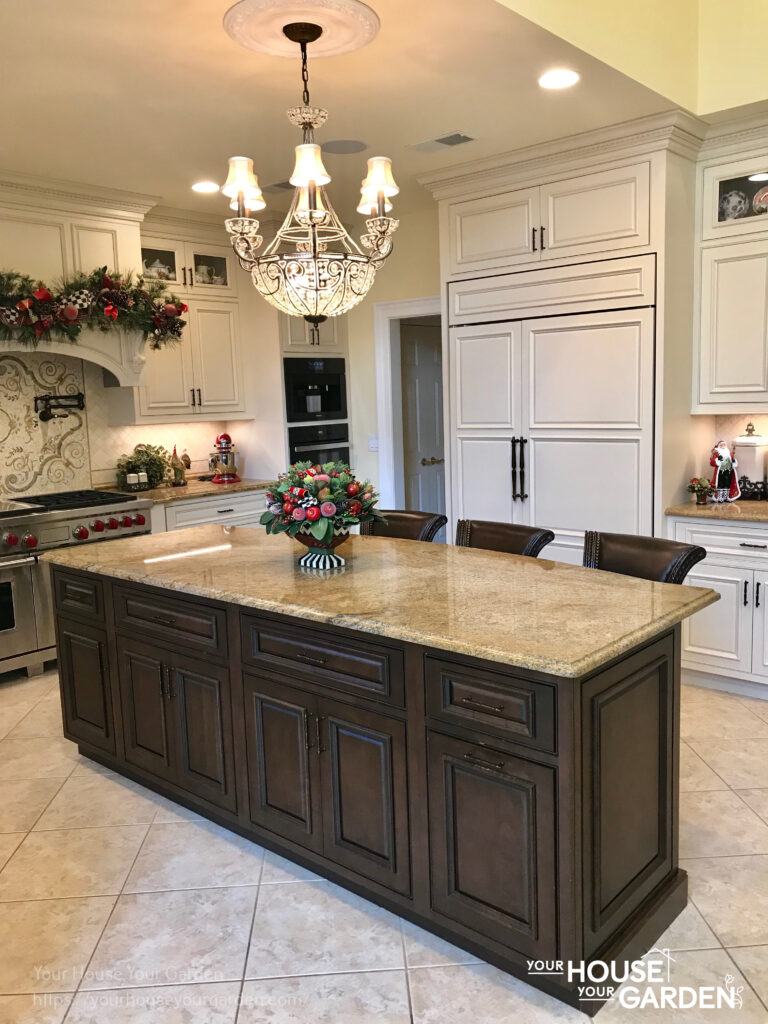
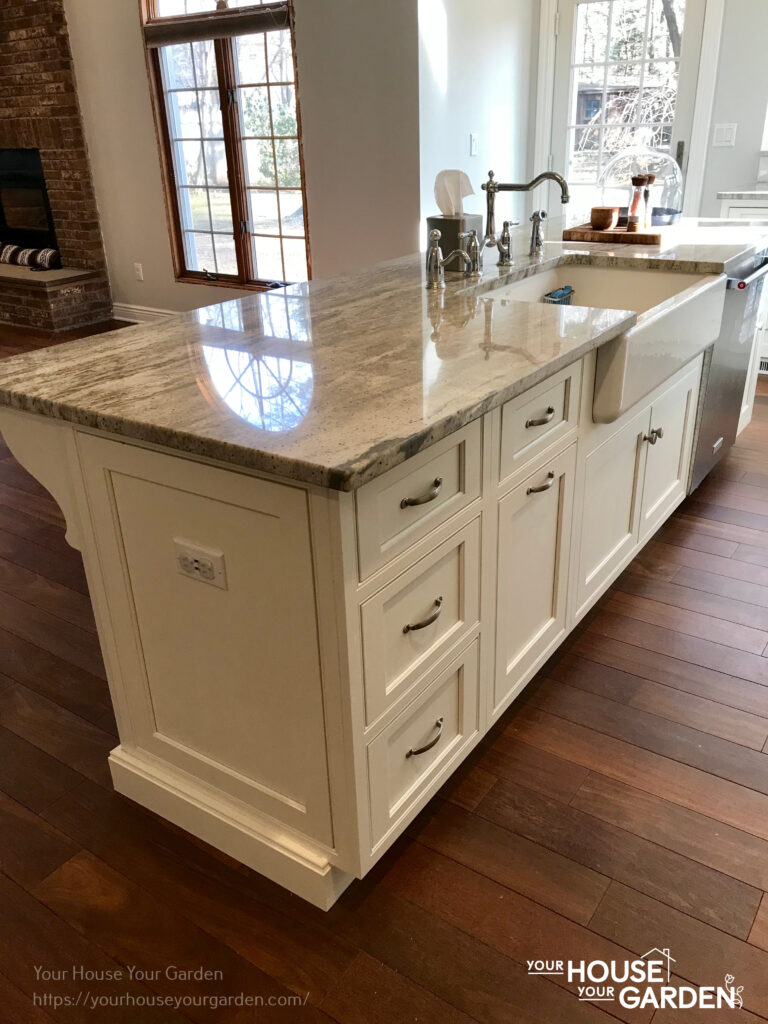
Comparing the Two
Looking at quartz and marble side by side, we can compare them based on their:
Appearance
The main difference between quartz and marble that homeowners may notice right away is their physical appearance. While marble is incredibly unique in terms of color and veining patterns, quartz will have a more uniform look even if it is manufactured to have a marble finish.
However, both materials come in different colors and patterns. If you’re looking for something more neutral, marble is available in different shades because of the different places it is quarried. On the other hand, quartz is manufactured in various colors so if you’re looking for a darker countertop, you will have a lot of options.
Durability
Between quartz and marble, the former is more durable. Marble is considered soft because of its calcite makeup which means that it will etch as well as crack if something heavy is dropped onto it. Quartz, being engineered, does not do this and is a great choice for busy kitchens and bathrooms.
Maintenance
Being non-porous, quartz is low-maintenance compared to natural stones like granite and marble. This means that quartz is quite resistant to stains and does not require sealing of any kind. Quartz, however, requires regular sealing to become more durable. After being sealed it will not stain, etch, or scratch as easily but will require re-sealing every 3 months to 6 months.
Installation
Similar to granite, marble and quartz should be installed by professionals. These are heavy countertops that should not be installed by homeowners alone. Additionally, both are expensive materials that can be dropped and damaged.
Costs
Quartz countertops per square foot will be around $60 while marble will cost $60 to $200. Both countertop materials are popular but marble is one of the most expensive options for counters.

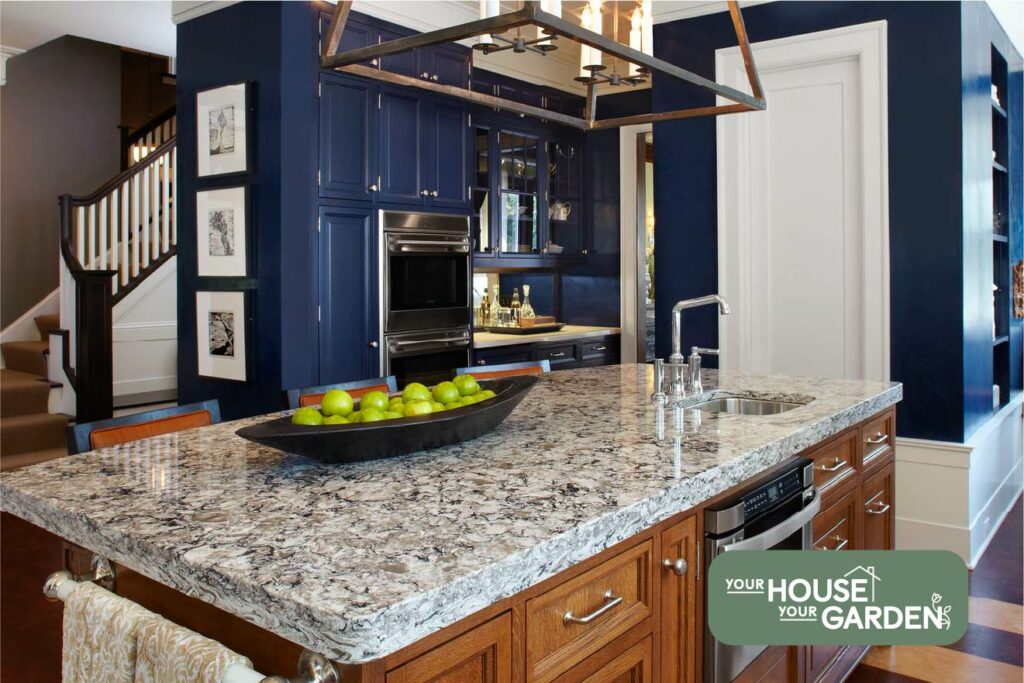
FAQs: Quartz vs Marble Countertops
Which material is harder?
Quartz is the harder countertop material among the two which makes it a popular kitchen countertop. Due to its composition, marble is soft and prone to absorbing liquids and etching.
What is the best countertop material for your money?
Quartz is the more affordable countertop. It can be manufactured to look like marble, granite, or soapstone but for a fraction of the price.
Are quartz or marble countertops easier to maintain?
Quartz countertops are easier to maintain because they do not need to be sealed like granite or marble in order to become non-porous. This countertop will not be scratched or stained easily which means that they are the option that is easier to take care of.
